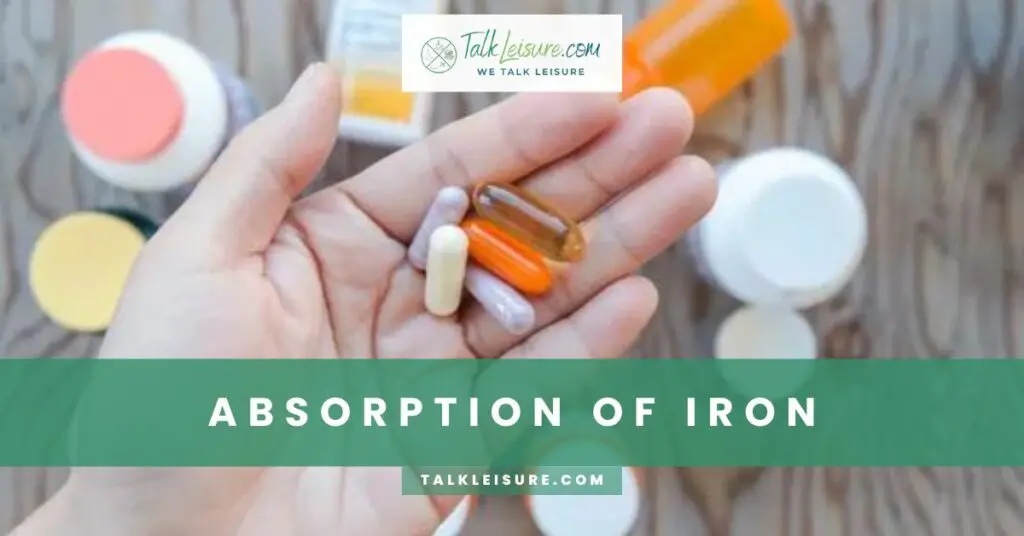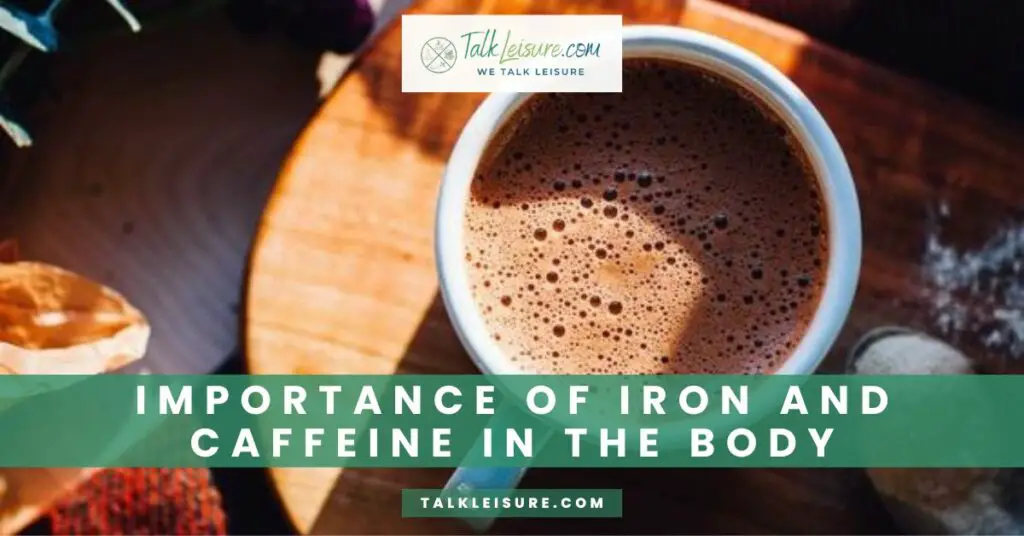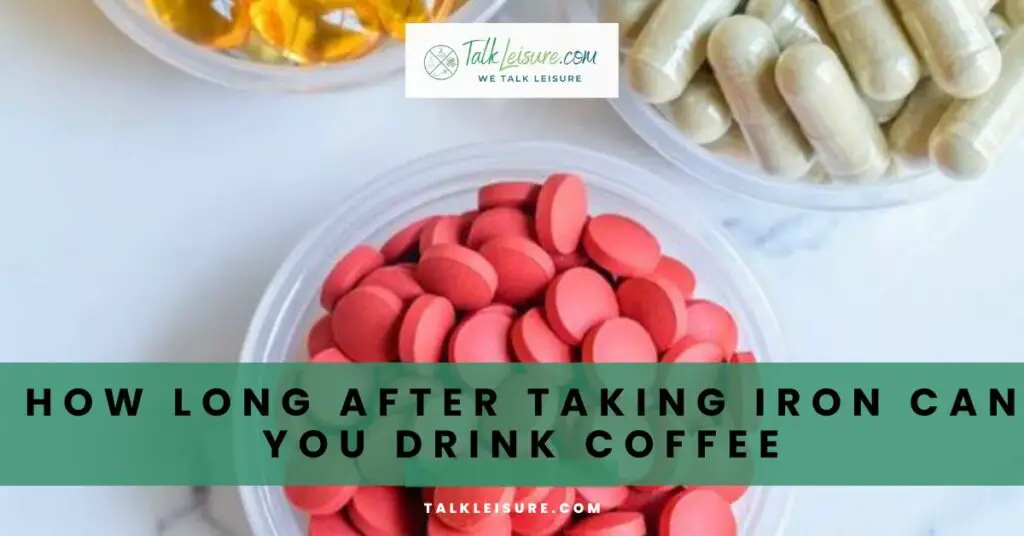Have you ever wondered if there’s a particular time frame you should wait before enjoying a cup of coffee after taking your daily iron supplement? It’s generally recommended to wait at least one to two hours after taking an iron supplement before drinking coffee or consuming any food or drinks that contain calcium or calcium-rich foods. This is because certain compounds in coffee and calcium can interfere with the absorption of iron.
Can I Have Cream in My Coffee While Intermittent Fasting
Why is the Timing of Iron and Coffee Consumption Important?
When it comes to iron absorption in the body, timing is key.
Iron is an essential mineral that plays a crucial role in various bodily functions, including transporting oxygen and supporting energy levels.
However, certain substances can hinder its absorption, and one of the culprits is coffee.
Coffee contains compounds called polyphenols, which can bind with iron and make it less available to your body.
Therefore, consuming coffee immediately after taking your iron supplement may interfere with the absorption process.
To ensure maximum iron absorption, it is recommended to wait at least one to two hours after taking your iron supplement before enjoying your cup of joe.
This gives your body enough time to absorb the iron properly and avoid any potential interaction with the polyphenols in coffee.
Remember, the goal is to optimize the benefits of your iron supplement.
In summary, if you’re taking iron supplements, it’s best to wait a couple of hours before indulging in your favorite coffee.
After Drinking Coffee, How Long Afterwards Will It Take My Body to Start Absorbing Iron Again?
Absorption of Iron

How the Body Absorbs Iron?
The absorption of iron is a crucial process for the body because iron is an essential mineral necessary for various physiological functions, including the production of hemoglobin in red blood cells.
Here’s an overview of how the body absorbs iron
Dietary Intake: Iron is obtained primarily from the diet. There are two forms of dietary iron:
- Heme Iron: This is found in animal-based foods like meat, poultry, and fish. Heme iron is more easily absorbed by the body, and it constitutes a significant source of iron for people who consume animal products.
- Non-Heme Iron: This form of iron is found in plant-based foods like legumes, grains, and leafy green vegetables. Non-heme iron is not absorbed as efficiently as heme iron.
Stomach Acid and Vitamin C: Once consumed, iron reaches the stomach. Here, it is exposed to stomach acid (hydrochloric acid), which helps convert some of the non-heme iron into a more absorbable form.
- Vitamin C (Ascorbic Acid): This vitamin enhances the absorption of non-heme iron. It can help convert non-heme iron into a more soluble form that the body can absorb.
Duodenum Absorption: The majority of iron absorption takes place in the duodenum, which is the first part of the small intestine. This region has a slightly alkaline pH (less acidic) compared to the stomach, which is important for iron absorption.Iron Transporters: Specialized proteins in the intestinal lining help facilitate the absorption of iron. There are two main types of transporters:
- Divalent Metal Transporter 1 (DMT1): This protein helps transport both heme and non-heme iron across the intestinal lining into the bloodstream
- Ferroportin: This protein transports iron out of the enterocytes (cells in the intestine) and into the bloodstream. It is crucial for the release of iron from the intestine into circulation.
Ferritin Storage: Once in the bloodstream, iron is bound to a protein called transferrin, which carries it to various tissues and organs. Iron can also be stored in cells in the form of ferritin until it is needed.
Tissue Uptake: Iron is taken up by cells in the bone marrow to be used in the production of hemoglobin for red blood cells. It is also utilized by other tissues for various metabolic processes.
It’s worth noting that the body has regulatory mechanisms to control iron absorption.
When iron stores are high, absorption is reduced, and when they are low, absorption is increased to help meet the body’s needs.
Additionally, certain factors can affect iron absorption.
For example, substances like calcium and tannins (found in tea) can inhibit iron absorption, while factors like vitamin C and certain organic acids can enhance it.
Factors That influence Absorption of Iron
How Coffee can Potentially Decrease Iron absorption and the Science behind it
Hey there, coffee lovers!
Several factors can influence the absorption of iron in the body.
These factors can either enhance or inhibit iron absorption. Here are some of the key ones
Factors That Enhance Iron Absorption
Heme Iron: Heme iron, found in animal-based foods like meat, poultry, and fish, is more readily absorbed than non-heme iron.
Vitamin C (Ascorbic Acid): Vitamin C enhances the absorption of non-heme iron. It helps convert non-heme iron into a more soluble form that the body can absorb.
Meat Protein Factor (MPF): This is a factor present in meat, fish, and poultry that enhances the absorption of non-heme iron. It is thought to work in synergy with heme iron.
MFP Factor (Meat, Fish, and Poultry): Apart from the MPF, the overall composition of these animal-based foods can enhance iron absorption.
Organic Acids: Certain organic acids found in foods, such as citric acid (found in citrus fruits) and malic acid (found in apples), can increase iron absorption.
Ferrous Iron (Fe2+): This is the reduced form of iron, and it is more readily absorbed compared to ferric iron (Fe3+).
Iron Deficiency: When the body is deficient in iron, it tends to absorb more iron from the diet to meet its needs.
Factors That Inhibit Iron Absorption
Oxalates: Found in foods like spinach, rhubarb, and beet greens, oxalates can form insoluble compounds with iron, reducing its absorption.
Polyphenols: Compounds found in tea, coffee, and some fruits and vegetables (e.g., tannins) can inhibit iron absorption.
Calcium: High levels of calcium, especially from supplements, can inhibit the absorption of both heme and non-heme iron.
Dietary Fiber: High-fiber foods, particularly those rich in insoluble fiber, can decrease iron absorption.
Certain Minerals: Excessive intake of certain minerals like zinc and manganese can compete with iron for absorption.
Alcohol and Caffeine: Excessive consumption of alcohol and caffeine can interfere with iron absorption.
Gastrointestinal Disorders: Conditions like celiac disease, Crohn’s disease, and gastric bypass surgery can impair iron absorption.
Medications: Some medications, like antacids containing calcium, can inhibit iron absorption.
Iron Overload: When iron stores are already high, the body downregulates absorption to prevent iron toxicity.
It’s important to note that while these factors can influence iron absorption, the body also has regulatory mechanisms to adjust absorption based on its needs.
The presence of multiple factors can sometimes counterbalance each other.
If someone has concerns about their iron levels, it’s advisable to consult a healthcare professional for personalized advice and potential supplementation.
Coffee Inhibits Iron Absorption?
Recommended Wait Time

The Ideal Time Gap Between Iron Intake and Coffee Consumption
As someone who has struggled with iron deficiency, I understand the importance of properly absorbing iron from supplements or dietary sources.
One question that often comes up is how long should you wait before drinking coffee after taking iron?
The general recommendation is to wait at least one to two hours after taking iron before consuming coffee.
This is because certain compounds in coffee, such as tannins and polyphenols, can inhibit the absorption of iron in the body.
By waiting a couple of hours, you allow enough time for the iron to be absorbed into your system before having your morning cup of joe.
If you can’t start your day without a caffeine fix, there are a few strategies you can implement to optimize iron absorption:
Take iron supplements with vitamin C-rich foods or drinks: Vitamin C enhances iron absorption, so pairing your iron supplement with orange juice or a vitamin C-rich fruit can help improve absorption.
Consider taking iron supplements with a meal: The presence of food in the stomach can help increase the acidity, promoting better iron absorption.
Space out iron intake: If you regularly consume coffee or other tannin-rich beverages, try taking your iron supplement at a different time of day to ensure optimal absorption.
Remember, it is always best to consult with a healthcare professional for personalized advice regarding your specific dietary needs and supplement regimen.
When it comes to iron deficiency, it’s important to understand what happens in your body and why it’s essential to address it.
Iron is a crucial mineral that helps transport oxygen throughout our bodies.
Without enough iron, you may experience fatigue, weakness, and difficulty concentrating.
What Happens When the Body Lacks Iron and the Importance of Addressing it
Iron deficiency can lead to a condition called anemia, which means there is a lower than normal level of red blood cells or hemoglobin in your blood.
When your body lacks iron, it struggles to produce enough healthy red blood cells, which can negatively impact your overall well-being.
Addressing iron deficiency is vital to maintain good health.
If left untreated, it can lead to severe symptoms and an increased risk of developing other health problems.
To address iron deficiency, it’s crucial to incorporate iron-rich foods into your diet or consider taking iron supplements.
While getting enough iron is important, it’s also necessary to consider how certain factors can affect iron absorption in your body.
One common question is how long after taking iron can you drink coffee.
This is because some studies suggest that coffee can inhibit iron absorption, especially when consumed with meals.
To maximize iron absorption, it’s generally recommended to wait at least one to two hours after taking iron supplements before drinking coffee or consuming any iron-inhibiting substances.
Importance of Iron And Caffeine in the Body

Importance of Iron
Essential for Hemoglobin Production: Forms the basis of hemoglobin, vital for oxygen transportation in red blood cells.
Oxygen Transport: Ensures efficient transport of oxygen from lungs to tissues, supporting energy levels and cellular function.
Prevents Iron-Deficiency Anemia: Inadequate iron leads to anemia, causing fatigue, weakness, and reduced immune function.
Importance of Caffeine
Stimulant Effect: Acts as a natural stimulant, enhancing alertness, concentration, and cognitive performance, reducing fatigue.
Enhances Physical Performance: Improves endurance, strength, and power during physical activities, benefiting athletes and fitness enthusiasts.
Mood and Mental Health: Moderate intake associated with reduced risk of depression, potentially influencing neurotransmitters.
Antioxidant Properties: Acts as an antioxidant, neutralizing free radicals, reducing disease risk, and supporting overall health.
Conclusion
It’s best to wait at least one to two hours after taking an iron supplement before drinking coffee.
Substances like coffee, particularly those containing compounds like polyphenols, can inhibit iron absorption.
Giving some time between iron intake and coffee consumption allows for better absorption of the iron in the digestive system.
However, for those with normal iron levels, occasional coffee consumption shortly after taking iron is unlikely to have a significant impact.
It’s important to maintain a balanced diet and consult a healthcare professional for personalized advice on iron supplementation and dietary habits.
Frequently Asked Questions
Should I avoid drinking coffee after taking iron?
It is generally recommended to wait at least one hour after taking iron supplements before consuming coffee or any other beverages containing caffeine.
This is because coffee and other caffeinated drinks can hinder the absorption of iron in your body.
How does coffee affect iron absorption?
Coffee contains compounds known as polyphenols, which can bind to iron and inhibit its absorption.
This means that when you drink coffee immediately after taking iron, you may not be getting the full benefits of the iron supplement.
Can I still enjoy coffee if I take iron regularly?
Absolutely! To ensure optimal absorption of iron, it is best to separate the consumption of coffee and iron supplements by at least one hour.
This way, you can continue to savor your favorite cup of coffee while also reaping the benefits of your iron intake.
Remember, it’s always a good idea to consult with your healthcare provider for personalized advice and recommendations regarding your iron intake and coffee consumption.
Best Wishes!












